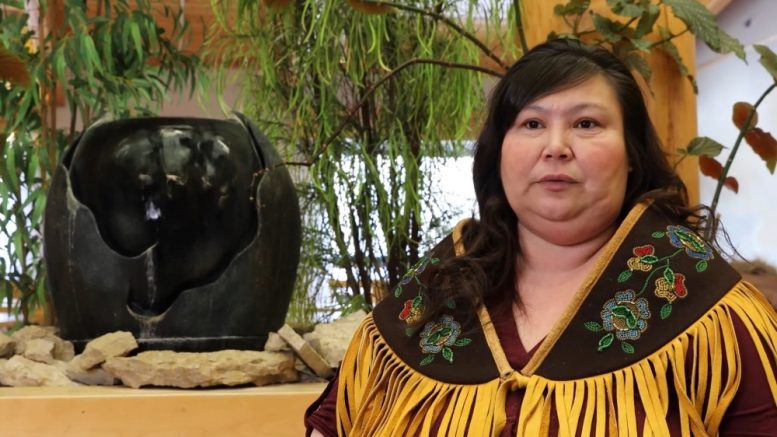The K’atl’odeeche First Nation (KFN) chief says a poverty report shows the territorial government needs to do more to address a housing crisis in the communities.
The Alternatives North NWT Poverty Report Card found that in 2018, 79 per cent of households in KFN identified at least one housing problem. That number is 90 per cent of households in Délı̨nę, and 81 per cent in Wekweètì.
“The numbers were really high,” KFN Chief April Martel says of the findings.
She adds some work has been done on KFN to address this issue, but there’s still a long way to go.
“There’s still overcrowding… There’s been no renovations on our housing,” Martel says.
She adds current programs launched by the Government of the Northwest Territories (GNWT) aimed at addressing housing issues haven’t been adequate. This includes the National Housing Co-Investment Fund, which has been previously criticized for it’s application process.
“The credentials are so high, it’s crazy. The applications are ridiculous,” she says.
Paulie Chinna, the minister of housing, was unable to provide a response to CKLB Radio in time for this story.
Martel says she has brought the issue up with Premier Caroline Cochrane recently, but plans to continue to address the subject in future meetings.
Alternatives North is a grassroots organization that looks into issues affecting the NWT. The report released on Dec. 9 is a collection of publicly available data and no original reporting was conducted.
Findings
Although an increasing number of residents in larger centres such as Yellowknife, Inuvik and Hay River are also facing poverty — the issue is worse in smaller communities.
The report card found a quarter of children in smaller communities live in poverty. That number rises to nearly half for children from single-parent families.
The report also looked at the different wages and found those earning minimum wage tend to be Indigenous, live outside Yellowknife, be younger and live with their parents and struggle to achieve basic living standards. Those earning minimum wage also tend to work in sales and services, some of the jobs hardest hit by the pandemic.
Lois Little, one of the authors of the report, says a big takeaway was how unequal the territory is.
“A friend of mine read the report and she said to me ‘Wow we have two territories here’,” Little says.
One territory for those with high paying jobs, such as those in the mining industry or the government, and another for everyone else.
“But the issue, and especially for smaller communities, they don’t often have access to good jobs,” says Suzette Montreuil, another author of the report.
Race and wellness
The subject of race was a major component of the report card.
“The NWT has deep colonial roots, a long history of marginalizing Indigenous people, and generations of people trapped in poverty,” the report reads.
Martel credited the report for identifying the longstanding issues that lead to poverty, including wellness.
“We’re all going through a struggle and no one ever seems to acknowledge that. So it’s good that this report is coming out,” she says.
Montreuil says poverty and wellness correlate and she wants to see programs that address this fact.
“If you’re really stressed, it’s hard to make good decisions for yourself, for your health, for your family,” she explains, “so we would like to see programs that help to address this from a point of dignity, and nobody chooses poverty.”
Recommendations
The report includes eight recommendations on how the GNWT can help residents escape poverty.
This includes re-evaluating the government’s NWT Anti-Poverty Strategic Framework.
“The anti-poverty strategy is seven years old and it seems to be missing the mark,” Little says, “so it’s really time to assess the effectiveness of it.”
Another suggestion was implementing a basic income for all residents.
“We really need to look at ways of meeting their needs on a long-term basis, with programs like basic income guarantee and living wages,” Montreuil says.
With the COVID-19 pandemic forcing governments to make massive policy changes, the report urges for the GNWT to use it as an opportunity.
Montreuil credited the territory with increasing the minimum wage to $18 an hour early in the pandemic.
She says this is an example that the government recognizes changes need to be made — she just hope it continues.
2020-12-09-nwt-report-card-final
Luke Carroll is a journalist originally from Brockville, Ont. He has previously worked as a reporter and editor in Ottawa, Halifax and New Brunswick. Luke is a graduate of Carleton University's bachelor of journalism program. If you have a story idea, feel free to send him an email at luke.carroll@cklbradio.com





